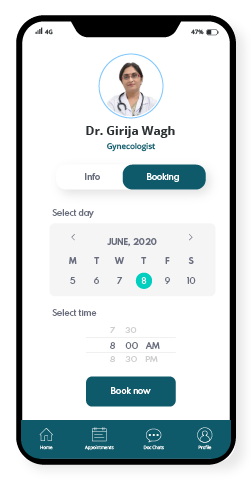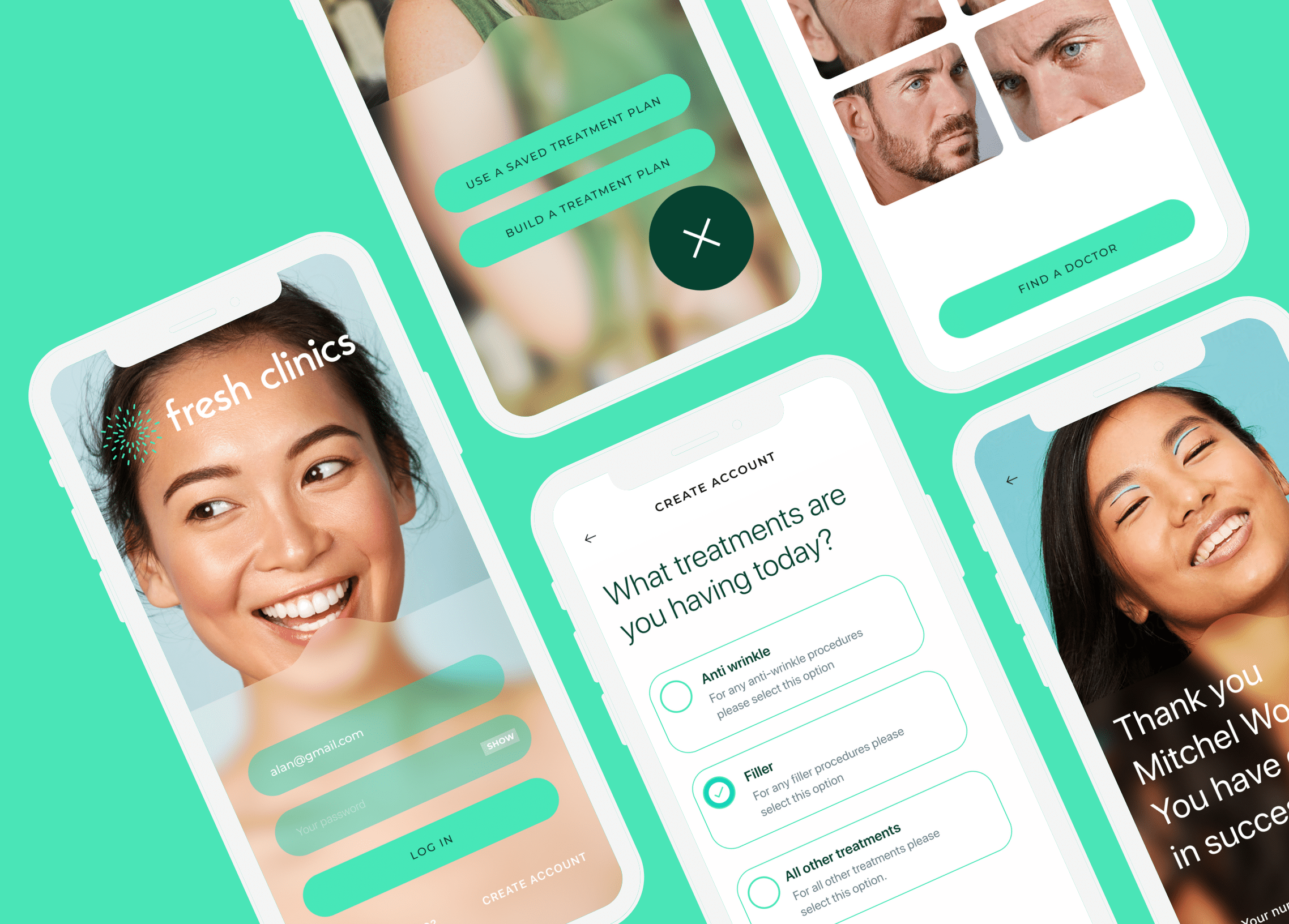Best Practices for Developing a Mobile App for Clinics That Fulfills Patient Demands
Best Practices for Developing a Mobile App for Clinics That Fulfills Patient Demands
Blog Article
The Future of Healthcare: Why Clinics Required a Mobile App Today
As the health care landscape remains to advance, facilities deal with mounting stress to adjust to person expectations for greater ease and availability. The combination of mobile applications can function as an important technique for enhancing client involvement and enhancing operations. By leveraging modern technology to enhance communication and give crucial solutions, facilities not just deal with existing demands yet likewise position themselves for future success. Nevertheless, the ramifications of this shift prolong past plain functional effectiveness; they can redefine patient connections and care delivery in profound means. What might this improvement appearance like for both clinics and patients?
Changing Patient Expectations
As the landscape of healthcare develops, patient assumptions are undertaking a substantial change. Today's individuals are significantly looking for convenience, ease of access, and individualized treatment. With the surge of technology, specifically mobile applications, individuals currently anticipate a smooth combination of healthcare solutions into their day-to-days live. They prefer the capacity to handle consultations, access medical records, and connect with healthcare companies with their mobile phones, reflecting a shift in the direction of an extra aggressive method to health administration.
In addition, individuals are ending up being extra educated and equipped, commonly looking into therapies and problems on-line before consultations. This enhanced understanding is coupled with a need for transparency in health care procedures, including cost estimates and therapy options. Therefore, service providers are forced to adjust by taking on digital tools that enhance the individual experience.
The assumption for effective and timely interaction has never been greater, with many individuals considering responsiveness an essential component of top quality treatment. mobile app for clinics. In this developing landscape, health care companies should identify these changing expectations and leverage mobile applications to cultivate a more patient-centric method, ensuring that they not just fulfill however go beyond the requirements set by today's educated consumers
Enhancing Person Involvement

Mobile applications facilitate communication between clients and health care carriers, making it possible for real-time visit organizing, tips for drug adherence, and direct messaging functions. These performances not only improve ease yet also build a sense of accountability among individuals. Mobile applications can offer academic web content tailored to individual needs, helping clients better recognize their conditions and therapy alternatives.
The combination of gamification aspects within health care applications can also inspire patients to take part in healthy actions, enhancing positive way of living adjustments. By tracking progression and fulfilling achievements, individuals are more most likely to stay dedicated to their health objectives. Inevitably, improving client interaction with mobile applications leads to boosted health outcomes, better client fulfillment, and a more collaborative medical care experience. Clinics that prioritize this element will likely see a substantial effect on the high quality of treatment supplied.
Improving Facility Workflow
Enhancing center operations is essential for boosting operations performance and optimizing individual treatment. The application of mobile applications can significantly decrease administrative burdens, enabling doctor to concentrate more on patient communications. By automating visit organizing, patient check-ins, and payment processes, facilities can decrease visit the website wait times and improve total operational performance.
Mobile applications also assist in real-time accessibility to patient documents, making it possible for medical care professionals to make informed choices swiftly. This immediacy not only enhances the quality of treatment but likewise reduces the probability of errors connected with lost or dated information. Furthermore, leveraging mobile modern technology sustains a more well organized method to taking care of person follow-ups and treatment strategies, guaranteeing that no crucial actions are overlooked.
Furthermore, mobile applications can improve supply monitoring by providing centers with tools to keep track of materials and drugs successfully. This enables prompt replenishment and helps avoid disturbances in client care as a result of equip shortages. By integrating these capabilities right into their everyday operations, clinics can create an extra natural and efficient atmosphere, eventually leading to improved person results and complete satisfaction. Accepting mobile innovation is not simply a pattern; it is a required advancement in the health care landscape.
Improving Communication Networks
Reliable communication is frequently pointed out as a keystone of quality medical care shipment. In today's hectic medical setting, mobile applications can significantly improve communication networks between clinics, patients, and medical care carriers. By incorporating mobile apps right into their procedures, centers can facilitate more information real-time interactions, guaranteeing that patients obtain timely info regarding their visits, examination outcomes, and therapy strategies.
Mobile apps additionally encourage clients to connect directly with their healthcare he has a good point teams via safe messaging attributes. This direct line of interaction fosters a feeling of involvement and allows for prompt information of issues, which can bring about better adherence to treatment methods. Push notifications can advise individuals of upcoming appointments or medicine timetables, decreasing no-show rates and improving total wellness outcomes.

Staying Affordable in Health Care
In a swiftly developing healthcare landscape, companies must focus on development and flexibility to maintain a competitive side. The assimilation of mobile applications into medical care services is no more optional; it is vital for facilities intending to boost patient interaction, improve operations, and enhance overall solution distribution.
As individuals significantly rely upon electronic systems for wellness management, facilities that fall short to embrace mobile modern technology threat dropping behind. A properly designed mobile app can provide attributes such as appointment organizing, telemedicine assessments, and access to clinical documents, giving clients with ease and fostering loyalty.

Rivals are additionally buying mobile solutions, so remaining in advance requires continuous renovation and remaining educated regarding technological developments. Clinics must not just apply mobile applications yet additionally take part in normal updates and improvements. Eventually, the effective integration of mobile innovation will identify forward-thinking medical care organizations and established the standard for patient-centric treatment in a digital globe.
Final Thought
In final thought, the combination of mobile applications in centers is necessary to resolve the progressing landscape of patient expectations. Ultimately, the strategic implementation of mobile apps represents an essential step towards supplying tailored and accessible healthcare, thereby meeting the demands of today's equipped individuals.
Eventually, enhancing individual engagement with mobile applications leads to enhanced health results, better client contentment, and an extra collaborative medical care experience.Mobile apps also facilitate real-time access to person documents, making it possible for medical care professionals to make educated choices promptly. In today's hectic clinical setting, mobile applications can dramatically improve interaction networks between clinics, clients, and healthcare service providers.Mobile apps likewise encourage individuals to connect directly with their healthcare groups through safe and secure messaging functions. Ultimately, the critical execution of mobile apps represents a crucial action toward delivering customized and accessible medical care, therefore fulfilling the needs of today's empowered patients.
Report this page